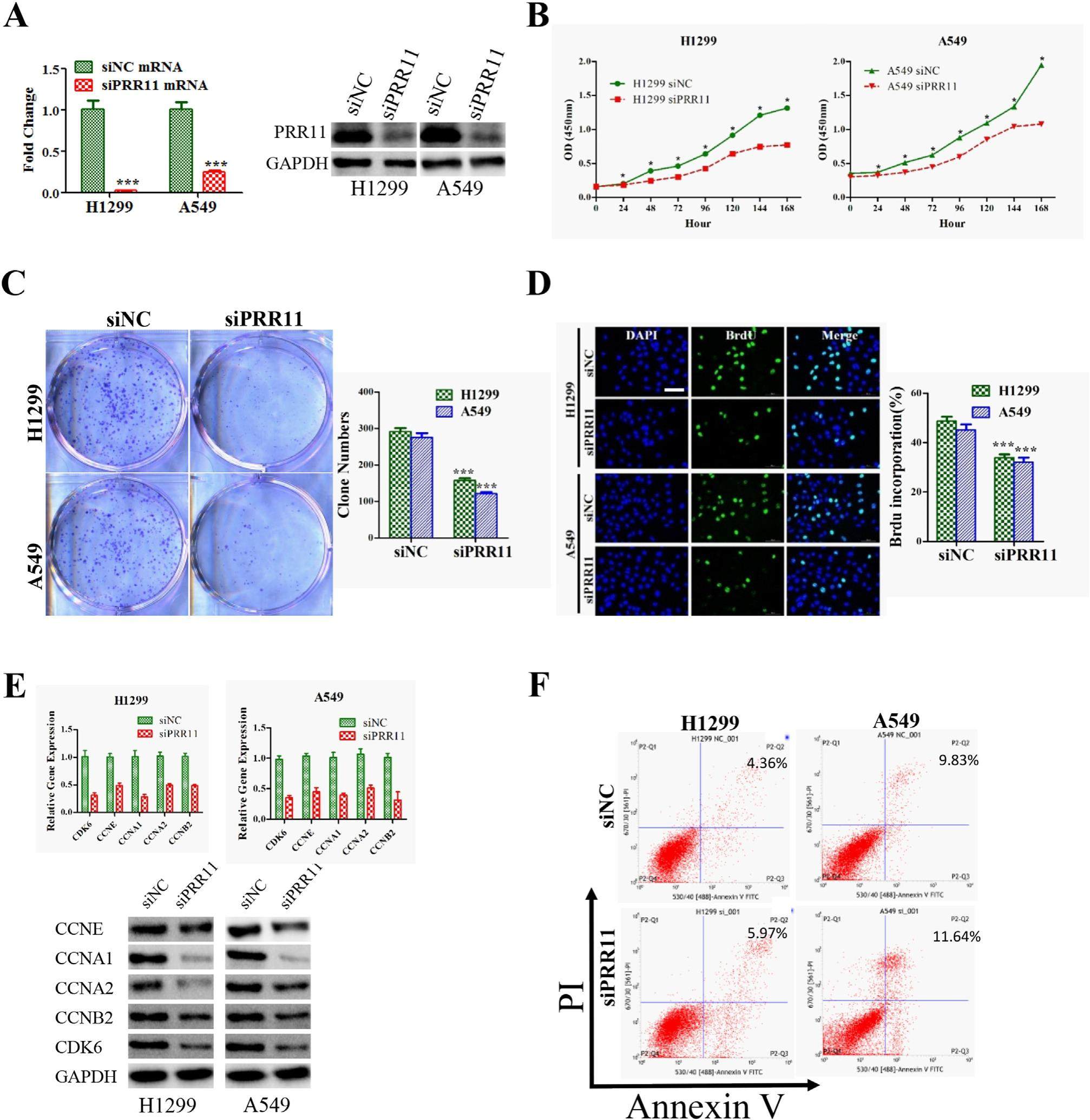
Silencing of PRR11 suppresses cell proliferation and induces autophagy in NSCLC cells


Our previous studies have demonstrated that proline-rich protein 11 (PRR11) is a novel tumor-related gene and implicates in regulating the proliferation in lung cancer. However, its precise role in cell cycle progression remains unclear. Our recent evidences show that PRR11 silencing has an effect on autophagy in non-small-cell lung cancer (NSCLC) cells. Two human NSCLC cell lines, H1299 and A549 were transiently transfected with against PRR11 siRNA. The Cell Counting Kit-8 and plate clone formation assay showed that downregulation of PRR11 inhibited the cell proliferation associated with cell cycle related genes reduced. And our data suggested that PRR11 depletion expression enhanced the autophagosomes formation, followed with downregulation of P62 and upregulation of LC3-II protein. Furthermore, the immunoblotting results indicated that silencing of PRR11 inactivated the Akt/mTOR signaling pathway. Collectively, these results demonstrated PRR11 had an effective role in autophagy in NSCLC cells through Akt/mTOR autophagy signaling pathways. Therefore, it is helpful to clarify the function of PRR11 in tumorigenesis of NSCLC.
